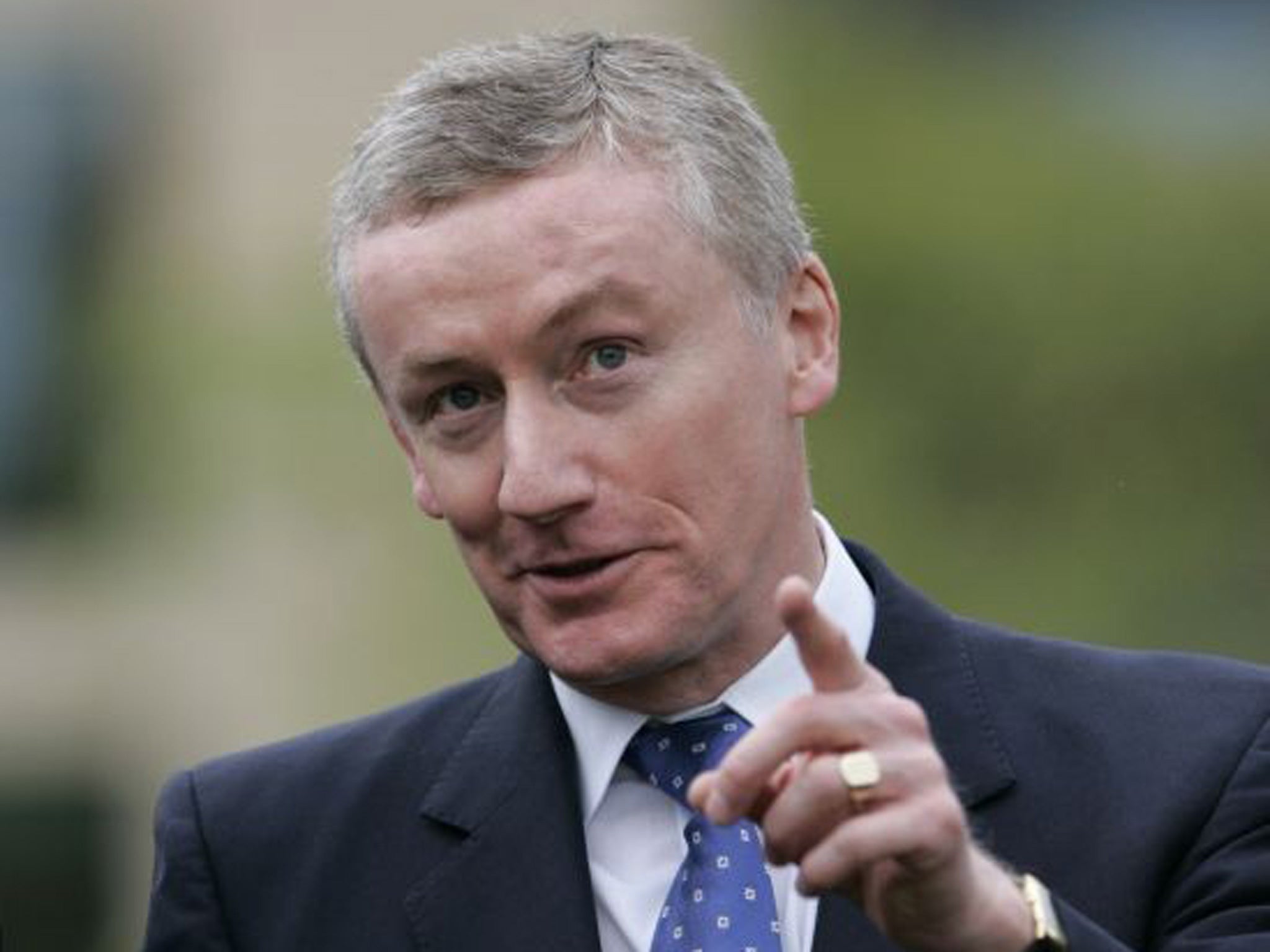Royal Bank of Scotland threatened with inquiry over its £6.5m defence fund for disgraced former boss Fred Goodwin
RBS expects to spend £125m defending the civil case, including £6.5m already paid for the legal fees of Mr Goodwin and his fellow executives, including former chairman Sir Tom McKillop

The Royal Bank of Scotland has been warned that it could face an inquiry by the Treasury Select Committee over its decision to spend millions of pounds of taxpayers’ money defending its former disgraced chief executive Fred Goodwin in a major legal case.
The RBS Shareholders Action Group is suing the bank, which is still 71 per cent owned by the state, over its £12bn rights issue in 2008, claiming that senior executives at RBS, including Mr Goodwin, misled investors over the true financial strength of the bank nine years ago.
RBS expects to spend £125m defending the civil lawsuit, including £6.5m already paid for the legal fees of Mr Goodwin and his fellow executives, including former chairman Sir Tom McKillop.
The case is due to come to court on 22 May, with Mr Goodwin set to give evidence in person on 8 June, the same day as the general election.
But a number of MPs on the TSC have now said that RBS’s vast expense on defending the case is inappropriate and warned they may investigate in due course.
“This affair is being closely watched by members of the Treasury Select Committee and is the type of issue the Committee may well look into once legal proceedings are completed,” said the Conservative MP Jacob Rees-Mogg.
That was echoed by a Labour member of the committee, Rachel Reeves, who suggested the bank’s expenditure went against the spirit of the 2000 Financial Services and Markets Act and its goal of protecting small investors in legal disputes with large commercial institutions.
“If RBS loses this case, the bank will have a lot of explaining to do to staff, shareholders and the public on why it spent a fortune on this case,” she said.
Wes Streeting, another Labour TSC member, said RBS was guilty of a “grotesque waste of money” and was engaging in “bullying tactics” against the 27,000 small investors in the RBS shareholder group of claimants.
The group includes 4,000 current RBS employees.
The RBS chief executive Ross McEwan said in February that: “If I was an ex-director or a member of staff, I would not be taking a case against the bank I had served on. If I was a senior executive and I was responsible for the bank, I would not do that.”
This has been interpreted by some of the RBS employees taking part in the legal action as a veiled threat, although the bank insists Mr McEwan was only referring to senior executives.
An RBS spokesperson said: "We understand that thousands of members and former members of RBS staff are taking part in these pre-existing proceedings and the bank has in no way discouraged their participation.”
The former Business Secretary, Sir Vince Cable, who will stand again in Twickenham for the Liberal Democrats at the forthcoming general election, recently castigated RBS’s current executive team for their expenditure on this case and called on the Government to intervene.
On Friday RBS will unveil its first quarter result with City analysts expecting it to report a profit of between £50m and £70m.
However, this comes after £7bn loss for 2016, bringing total losses since RBS was bailed out by the taxpayer in 2008 to £58bn.
Business news: In pictures
Show all 13Ministers spent around £45.5bn bailing out RBS between 2008 and 2009 for fear of the collateral economic chaos the bank’s failure would create, investing at an average price of 500p per share. The stock was trading on Wednesday at 252.3p, implying a £22bn paper loss for the state.
The Chancellor, Philip Hammond, admitted to MPs earlier this month that the Government was likely to crystalise much of this loss when it eventually sells the shares.
Fred Goodwin was stripped of his knighthood in 2012 after it was decided he had “brought the honours system into disrepute”. He had been knighted under the Labour government in 2004 for “services to banking”.
In response to the MPs' comments, RBS said that it was "normal" for the bank to cover all of Mr Goodwin's legal fees.
“It is normal practice under company law that directors would be indemnified in relation to any third party legal action arising from their tenure at the bank," a spokesperson said.
“We have a duty to act in the best interests of all of our shareholders, including the UK taxpayer. We believe we have strong defences to this claim and will defend ourselves vigorously in court.”
RBS has made an offer of £800m to those groups affected by the 2008 capital raising, with no admission of liability. While 80 per cent of claimants by value agreed, the RBS Shareholder Action Group is understood to have refused to accept it, forcing the case to court.
Subscribe to Independent Premium to bookmark this article
Want to bookmark your favourite articles and stories to read or reference later? Start your Independent Premium subscription today.

Join our commenting forum
Join thought-provoking conversations, follow other Independent readers and see their replies